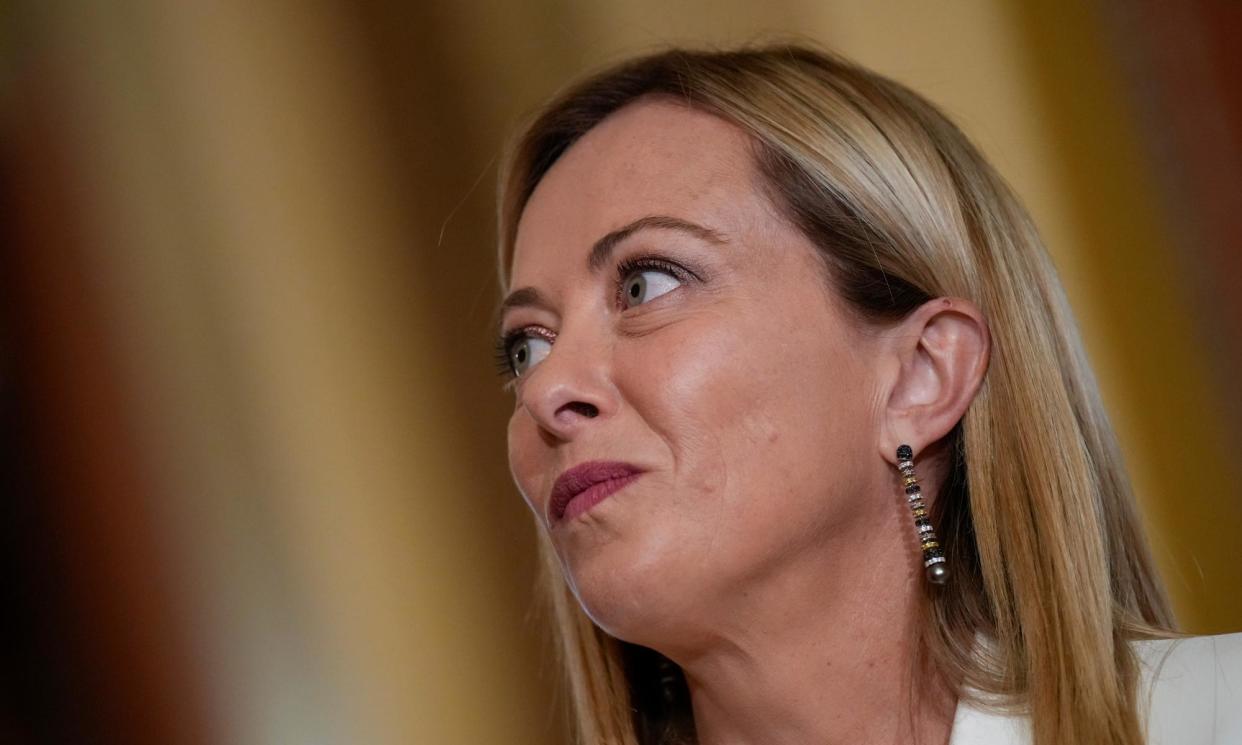Italy passes measures to allow anti-abortion activists to enter abortion clinics

Italian opposition parties have said women’s rights in Italy have been dealt a “heavy” blow after parliament passed a measure by Giorgia Meloni’s far-right government allowing anti-abortion activists to enter abortion consultation clinics.
The measure forms part of a package of initiatives approved by Meloni’s cabinet that will be funded by the EU’s post-pandemic recovery fund, of which Italy is the biggest beneficiary, and was put to the lower house in a confidence vote on Tuesday. The package of measures is expected to comfortably pass in the senate, too.
The move follows measures already adopted by several rightwing-led regions in funding pressure groups to infiltrate consultation clinics, which provide women with a certificate confirming their wish to end a pregnancy. Some regions, such as Marche, which is led by Meloni’s Brothers of Italy, have also restricted access to the abortion pill.
Abortion was legalised in traditionally Catholic Italy in 1978 under legislation called Law 194. Although Meloni has promised not to change the law, accessing safe abortions in Italy is increasingly difficult due to the high number of gynaecologists who refuse to terminate pregnancies for moral or religious reasons. According to health ministry data from 2021, about 63% of gynaecologists refuse to perform the procedure.
The deputy prime minister Antonio Tajani said that while the government had no intention of changing the law, “we must not criminalise those who are against abortion”. He said: “We have always allowed freedom of conscience on issues of this kind. I believe it is right for everyone to behave according to their own beliefs and conscience.”
Elly Schlein, the leader of the centre-left Democratic party (PD), said the measure was a “heavy attack against the liberty of women”, while Silvia Roggiani, a PD deputy, said: “The right wing continues to display its nostalgic nature and obscurantist and patriarchal vision by trying, in every way, to erode women’s rights. It’s shameful.”
Deputies with the Five Star Movement said Italy had “chosen to take a further steps backwards”.
Before the vote, Jacopo Coghe, a spokesperson for Pro Vita, Italy’s biggest anti-abortion organisation, told the Italian media that the group had no intention of entering abortion consultation clinics. However, he said the clinics should “return to their original function of helping women find concrete alternatives to abortion”.
He said Pro Vita’s main “sphere of action” was “public awareness and political influence with national campaigns”. The group is often behind controversial anti-abortion poster campaigns, including one in 2018 that labelled abortion as “the prime cause of femicide”.
Luisa Rizzitelli, a women’s rights activist and the coordinator in Italy for One Billion Rising, which campaigns to end violence against women, said: “This measure might seem like a small thing, but symbolically it is very strong and serious – the government is giving a clear sign in that they want to do everything possible to persuade women to change their minds. This shouldn’t be happening.”


